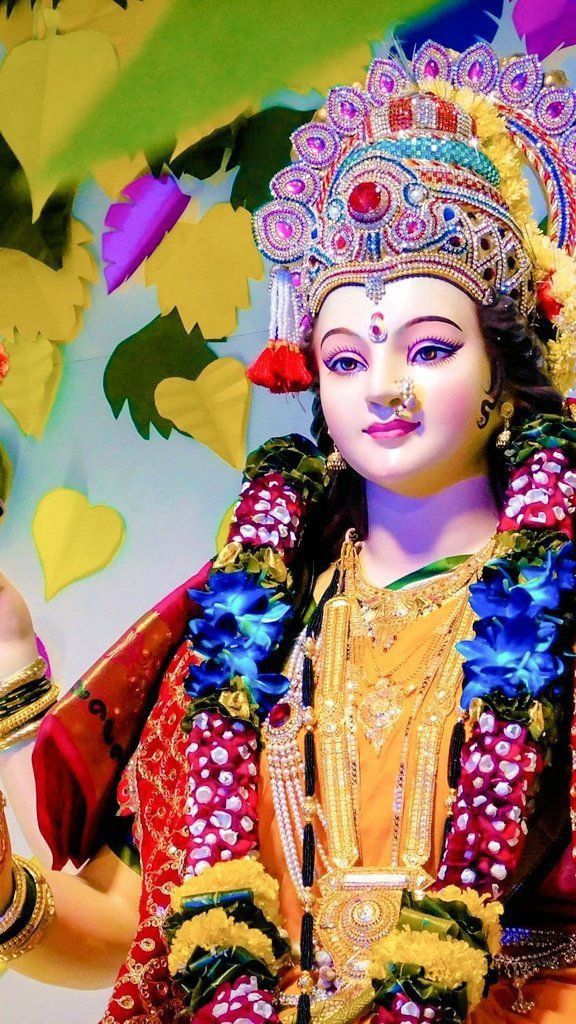
Navratri is an auspicious nine day period, i.e Shardiya Navratri which will begin on Tuesday 3rd October. During the nine days of Navratri devotees offer various items to Goddess Durga to seek her blessings for prosperity and to get rid of debts.
The festival of Navratri is a time of immense spiritual significance for all devotees, celebrated with great fervor and devotion. Among the various aspects of Navratri, it is believed that worshiping Goddess Durga during these auspicious nine days can lead to blessings of prosperity and financial well-being. Many devotees seek ways to eliminate debt and invite financial blessings into their lives during this sacred period. There are some traditional offerings and practices that can help you in your quest for prosperity and financial well-being.

Navratri is celebrated in different forms across India, but its core essence remains universal: invoking the Goddess Durga in her nine powerful forms. Each day of Navratri has special significance, and the energy of these nine days is believed to be particularly potent in clearing away negative influences, including financial struggles. Navratri can become a turning point for you to overcome debt by integrating spiritual practices that purify your intentions and uplift your financial well-being.
Now, let’s explore the 12 traditional practices that have been followed for generations to seek the Goddess’s blessings for financial relief.

1. Flowers: Symbolizing Purity and Devotion

During Navratri 2024, offering flowers to the goddess symbolizes purity, devotion, and positive energy. Flowers such as marigolds, lotus, and hibiscus are associated with abundance and prosperity. Marigolds are known to attract wealth and good fortune, while lotus flowers signify spiritual purity and a clear path to financial success. By offering flowers with sincerity, devotees create a direct connection with the goddess, invoking her blessings to remove financial obstacles and pave the way for prosperity.
Each morning, offer fresh flowers during your daily prayer. Place them on the altar or at the foot of the goddess’s idol. Make this offering while visualizing your financial burdens being lifted and replaced with abundance and peace.

2. Fruits: A Symbol of Abundance and Fertility
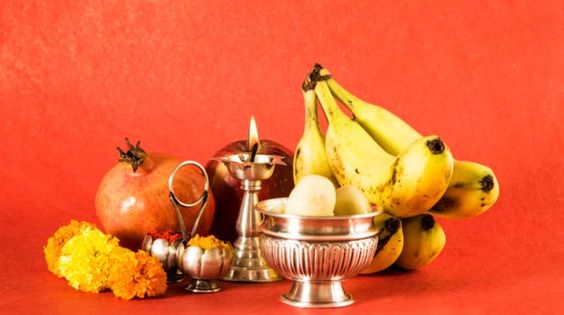
Fruits are often used as offerings to the goddess as they represent abundance, fertility, and prosperity. During Navratri 2024, offering fruits such as bananas, pomegranates, and apples is symbolic of the bounty that nature provides, and it is believed to bring financial growth and stability. When you offer fruits with devotion, you are aligning yourself with the natural flow of abundance, which is essential for eliminating debt and securing financial blessings.
How to Offer:
Place a variety of fresh, seasonal fruits in front of the goddess during your daily prayers. After the puja, distribute these fruits as prasad, sharing the blessings of abundance with your family and community.
3. Prasad: The Power of Sharing and Gratitude

Preparing special prasad, or sacred food offerings, is a deeply meaningful tradition during Navratri. On each of the nine days, different sweets and foods are prepared to honor the goddess. Sweets like halwa, puri, and kheer are commonly used and symbolize the sweetness and joy you wish to invite into your life. This practice emphasizes gratitude and sharing, which are fundamental to receiving financial blessings. This is offered to the goddess and then distributed among family and friends.
How to Offer:
Prepare prasad each day with devotion and care. Offer it to the goddess as a symbol of your gratitude for her blessings. After the puja, share the prasad with your family, neighbors, or those in need, embodying the principle of generosity, which is essential for inviting abundance.
4. Coconut: Surrendering to Maa to Seek Blessings

A coconut is often offered to the goddess as a symbol of complete surrender. The hard outer shell of the coconut represents the ego, while the soft interior symbolizes the purity of your intentions. By offering a whole coconut, you are surrendering your financial worries and trusting the goddess to provide stability and prosperity.
How to Offer:
Place the coconut on the altar or at the feet of the goddess and offer it with the intention of letting go of financial fears. Pray for her blessings to help you clear debts and maintain financial balance.
5. Ghee (Clarified Butter): Dispelling Financial Obstacles and Negativity

Lighting a ghee lamp during Navratri is an ancient tradition believed to remove negative energies and financial hurdles. Ghee represents purity and is associated with the light of knowledge, which dispels darkness and obstacles from your financial path.
How to Offer:
Light a ghee lamp during your daily puja. As you do, focus on eliminating the darkness of debt and replacing it with the light of prosperity and financial stability.
6. Incense and Diyas (Oil Lamps): Inviting Positive Energy and Symbolism of Enlightenment

Lighting incense sticks and diyas during Navratri is another powerful way to remove financial obstacles and invite positive energy. The act of lighting incense symbolizes spiritual cleansing, while diyas represent enlightenment and hope, guiding you toward financial freedom.
How to Offer:
Burn incense and light diyas every evening during the nine days of Navratri. Pray for financial clarity, positive energy, and the removal of all obstacles that stand in the way of prosperity.
7. Sandalwood Paste and Kumkum: Symbols Devotion and Wealth
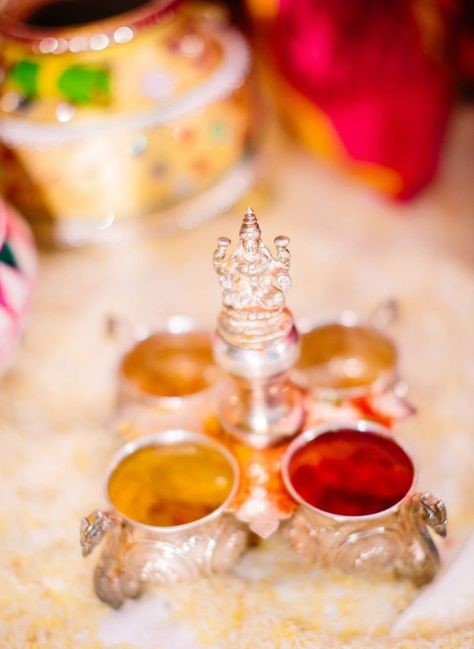
Applying sandalwood paste and kumkum to the idol of Goddess Durga is a gesture of reverence and devotion. These sacred substances are believed to attract wealth, success, and prosperity.
Apply sandalwood paste and kumkum to the goddess’s forehead each day during your prayers, and ask for her divine blessings in overcoming financial struggles.
8. Rice: Symbol of Abundance
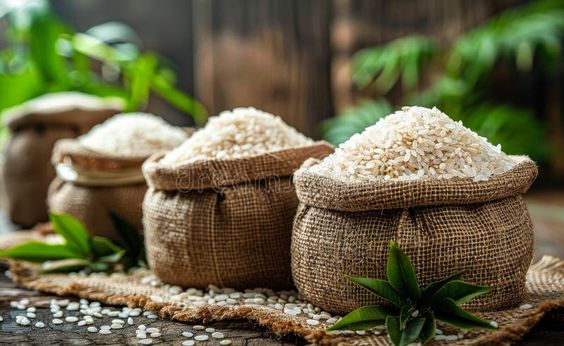
Rice: Offering uncooked rice is a symbol of fertility and abundance. It is considered a sacred offering to the goddess for her blessings. It is a fundamental source of nourishment and sustenance. Offering it symbolizes the devotee’s gratitude for the life force and for the nourishment provided by nature and the divine. Rice has been used in Hindu rituals and offerings for centuries, especially in pujas and havans (fire ceremonies). During Navratri, it is offered to invoke the blessings of the goddess for health, prosperity, and success.
How to offer:
You can offer the rice in a small clean plate or bowl and place it in front of the deity. Alternatively, place a few grains of rice directly on a betel leaf (or banana leaf) with other offerings like flowers and fruits. By offering rice with devotion and a pure heart, you invite the blessings of Goddess Durga and her various forms for happiness, success, and protection during Navratri.
9. Dhurva Grass: Removing Debts
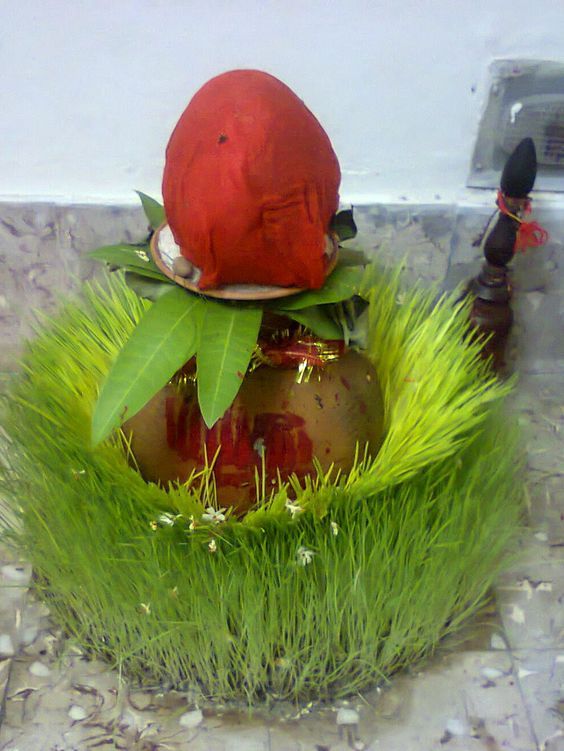
Dhurva Grass: The offering of dhurva grass is believed to remove debts and financial burdens by warding off negative energies. It is placed on the idol or image of the goddess. Dhurva grass is believed to have divine qualities and is associated with Lord Ganesha and Goddess Durga, among other deities. Offering Durva grass symbolizes purity, humility, and devotion. It is believed that the soft, green blades of this grass represent freshness, growth, and a connection with nature. Offering it signifies a devotee’s pure and selfless love towards the deity.
How to offer:
Offer it to the deity with a prayer or mantra, seeking blessings. Gently place the Durva grass at the feet of the Goddess. You can also place it on a betel leaf or along with flowers and other offerings. Chant Mantras and seek blessings for health, prosperity, and protection.
10. Jaggery: Seeking Sweetness in Life

Jaggery: Jaggery or gur is a symbol of sweetness and can be offered to Goddess Durga as a symbol of seeking her blessings for a sweet and prosperous life. Jaggery is considered a pure, unrefined form of sugar and is associated with purity in Hindu rituals. Since Navratri is a time of purification and devotion, jaggery is seen as a sattvic (pure) offering. Offering jaggery during Navratri is believed to please Goddess Durga and her various forms, especially Maa Kushmanda, who is worshipped on the fourth day of Navratri. She is said to bless devotees with prosperity, health, and happiness when jaggery is offered to her.
How to offer:
Place the jaggery in front of the goddess’s idol or image, along with the other offerings.You can also include jaggery in a special prasad preparation, such as mixing it with puffed rice or making sweets like kheer or panchamrit (a mixture of milk, curd, honey, ghee, and jaggery). After completing the puja and offering the jaggery, distribute it as prasad to family members, friends, or anyone present.Eating the jaggery prasad is believed to invoke the blessings of the goddess and bring sweetness and happiness into the lives of the devotees.
11. Tulsi Leaves: Sacred Purity
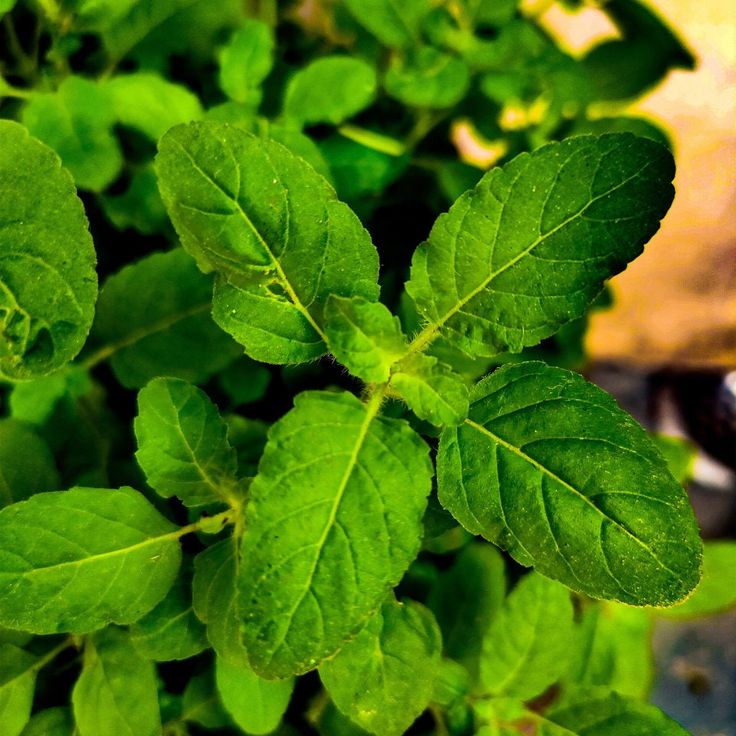
Tulsi Leaves: Offer fresh tulsi leaves, also known as basil leaves, which are considered highly sacred. They symbolize purity and devotion. Tulsi is believed to have divine protective powers. By offering Tulsi leaves, devotees seek the goddess’s protection from evil forces, negative energies, and illnesses. Tulsi is also known to purify the environment, symbolizing the removal of obstacles and negativity from one’s life. Tulsi is often associated with Goddess Lakshmi, the goddess of wealth, prosperity, and well-being. During Navratri, devotees worship different aspects of the divine feminine, and offering Tulsi is seen as invoking the blessings of both Durga and Lakshmi for prosperity and spiritual growth. Offering Tulsi leaves signifies a prayer for good health, healing, and overall well-being, as the goddess is believed to bless her devotees with health and vitality.
How to Offer Tulsi During Navratri:
Gently place the Tulsi leaves at the feet of the Goddess. If you are performing an aarti or reciting a specific prayer, you can offer Tulsi leaves at intervals while chanting or singing. If you have a Tulsi plant at home, you can offer water to it daily during Navratri, as it is considered an act of devotion and care for a sacred plant.Tulsi can also be placed in the holy water used during the puja for purification purposes.
12. Navratri Fast: Self-Discipline and Devotion

Navratri Fast: Many people observe a fast during Navratri, either completely or by consuming specific foods. Fasting is a form of self-discipline and devotion to the goddess and is believed to bring blessings for financial stability.
It’s important to remember that while these offerings and practices are considered auspicious, the most essential aspect of Navratri is devotion, faith, and pure intentions. Seek the blessings of the Goddess with a sincere heart, and you may find the prosperity and relief from debts that you are seeking during Navratri.
May these traditions and practices guide you on your journey to financial well-being and blessings.
If you liked this article or want to share some information with us then do write us in the comment section below.
Comment below your views. We would love to hear from you. Don’t forget to subscribe to us on our Social Channels to never miss out on any updates from us.
👉Read more about why should you avoid eating Onion and Garlic during Navratri
Read More 👉 Prasad /Special Bhog to offer for Prosperity this Navratri
If you liked this article or, then do write us in the comment section below.
✒️Author – Mrinalini Siingh
For Astrology, Numerology, and Reiki Services – Contact us at 9324801420 or drop your queries at [email protected]
For more information Subscribe to our website to know more about such facts.
For an enquiry, write to us at [email protected]
👉If you liked this article or, then do write us in the comment section below.
For Astrology, Numerology, and Reiki Services
We also deal in original quality and certified Rudraksha, Crystals and Gems.
👉Shop Now Original Rudraksha & Crystals
For more daily updates do like and Follow Us on our Social Channels and keep visiting www.jaymahakaal.com